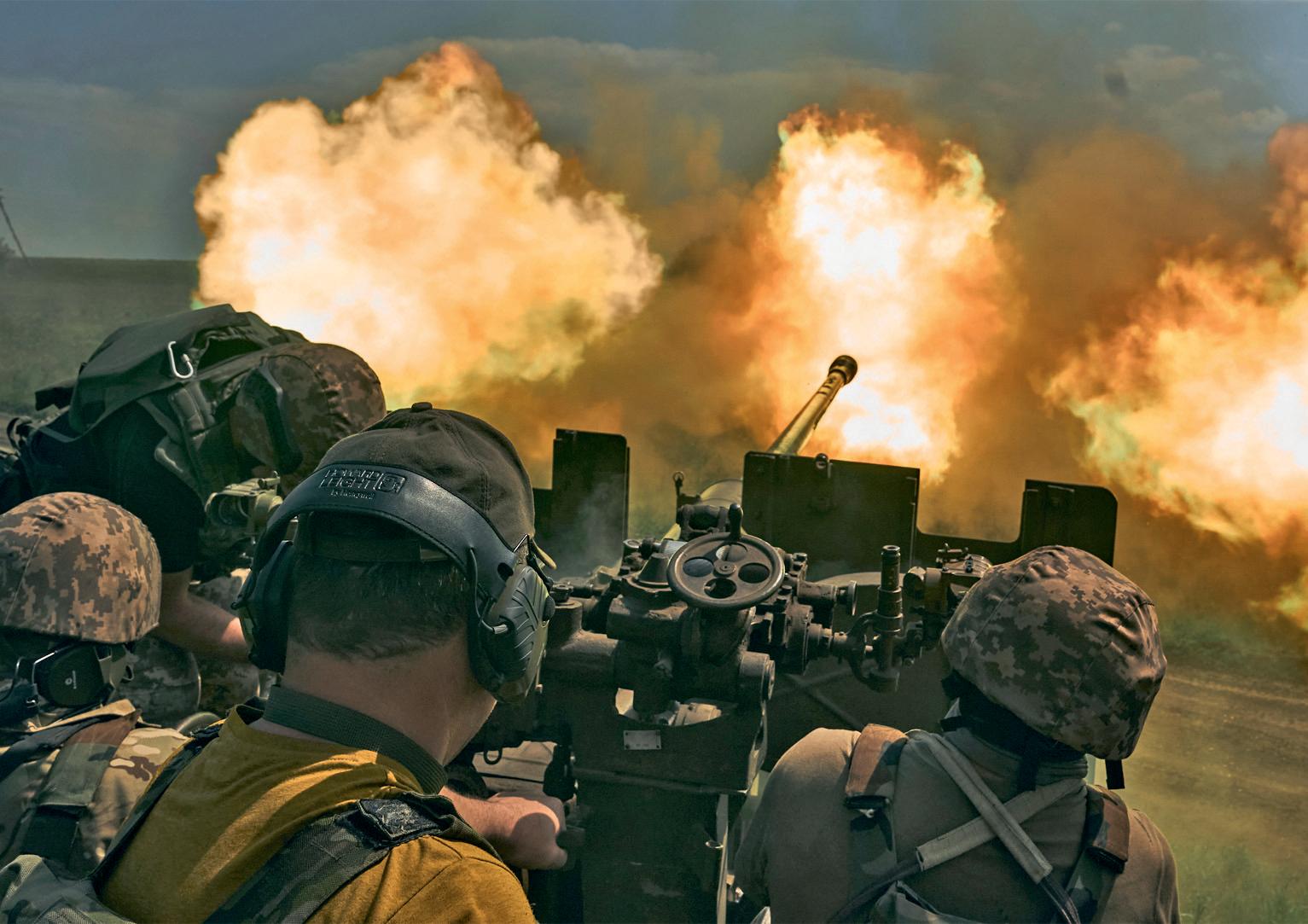
The occupying forces held firm, absorbing one attack after another, often counterattacking to recover lost ground, and mounting offensives of their own.
Ukrainian assaults got mired in dense, overlapping minefields. For all the focus on the delivery of Leopards and other western tanks before the launch of the offensive on 4 June, Ukrainian armour failed to help breach the lines.
Tanks were not a solution on their own. Without air superiority and overwhelming artillery support, they were vulnerable to Russian anti-tank missiles fired from the trenches and from gunships.
The Ukrainians had mine-clearing vehicles but not enough. They were priority targets for the Russians, who learned to stack anti-tank mines on top of each other to hobble them.
"You just can't overstate the role that these Russian minefields are playing," Matt Dimmick, a retired US colonel and former national security council director for Russia, said. "The stories that we're hearing from the frontlines is Ukrainian units come up against these defences where mines in some places are every metre or every two metres ... and it requires the Ukrainians to stop, dismount and push soldiers forward to clear those minefields and create lanes."
The Ukrainians adapted their tactics, switching to platoon-sized infantry units, often at night, to pick their way through the minefields. But that has meant progress has been slow. Pathways cleared through minefields have been quickly reseeded remotely by Russian drones or artillery.
This story is from the August 11, 2023 edition of The Guardian Weekly.
Start your 7-day Magzter GOLD free trial to access thousands of curated premium stories, and 9,000+ magazines and newspapers.
Already a subscriber ? Sign In
This story is from the August 11, 2023 edition of The Guardian Weekly.
Start your 7-day Magzter GOLD free trial to access thousands of curated premium stories, and 9,000+ magazines and newspapers.
Already a subscriber? Sign In

The Saudi football World Cup is an act of violence and disdain
Well, that's that then. In the event there were only two notes of jeopardy around Fifa's extraordinary virtual congress last week to announce the winning mono-bids, the vote without a vote, for the right to host the 2030 and 2034 football World Cups.

AI has made the move into video and it's worryingly plausible
I recently had the opportunity to see a demo of Sora, OpenAI's video generation tool, which was released in the US last Monday, and it was so impressive it made me worried for the future.

With tyrant Assad ousted, Syrians deserve support and hope
Last week, time collapsed. Bashar al-Assad's fall recalled scenes across the region from the start of the Arab spring almost 14 years ago. Suddenly history felt vivid, its memories sharpened. In fact it no longer felt like history.

TV
The Guardian Weekly team reveals our small-screen picks of the year, from the underground vaults of post-apocalyptic Fallout to the mile-high escapism of Rivals

Albums
Murky love stories, nostalgic pop and an in-your-face masterpiece captured our critics' ears in 2024

Film
Visual language, sound, light and rhythm are to the fore in the best movies of the year

Hidden delights Our 24 travel finds of 2024
Guardian travel writers share their discoveries of the year, from Læsø to Lazio

'It's really a disaster' The fight to save lives as gang war consumes capital
Dr James Gana stepped out on to the balcony of his hospital overlooking a city under siege. \"There's a sensation of 'What's next?'. Desperation is definitely present,\" the Médecins Sans Frontières (MSF) medic said, as he stared down at one of scores of camps for displaced Haitians in their country's violence-plagued capital.

Trailblazers The inspiring people we met around the world this year
From an exuberant mountaineer to a woman defiantly facing the guns of war, here are some of the brave individuals who gave us hope in a tumultuous 2024

Votes of confidence
From India to Venezuela and Senegal to the US, more people voted this year than ever before, with over 80 elections across the world. With rising authoritarianism and citizen-led resistance revealing its vulnerabilities and resilience in the face of unprecedented challenges, has democracy reached its breaking or turning point?